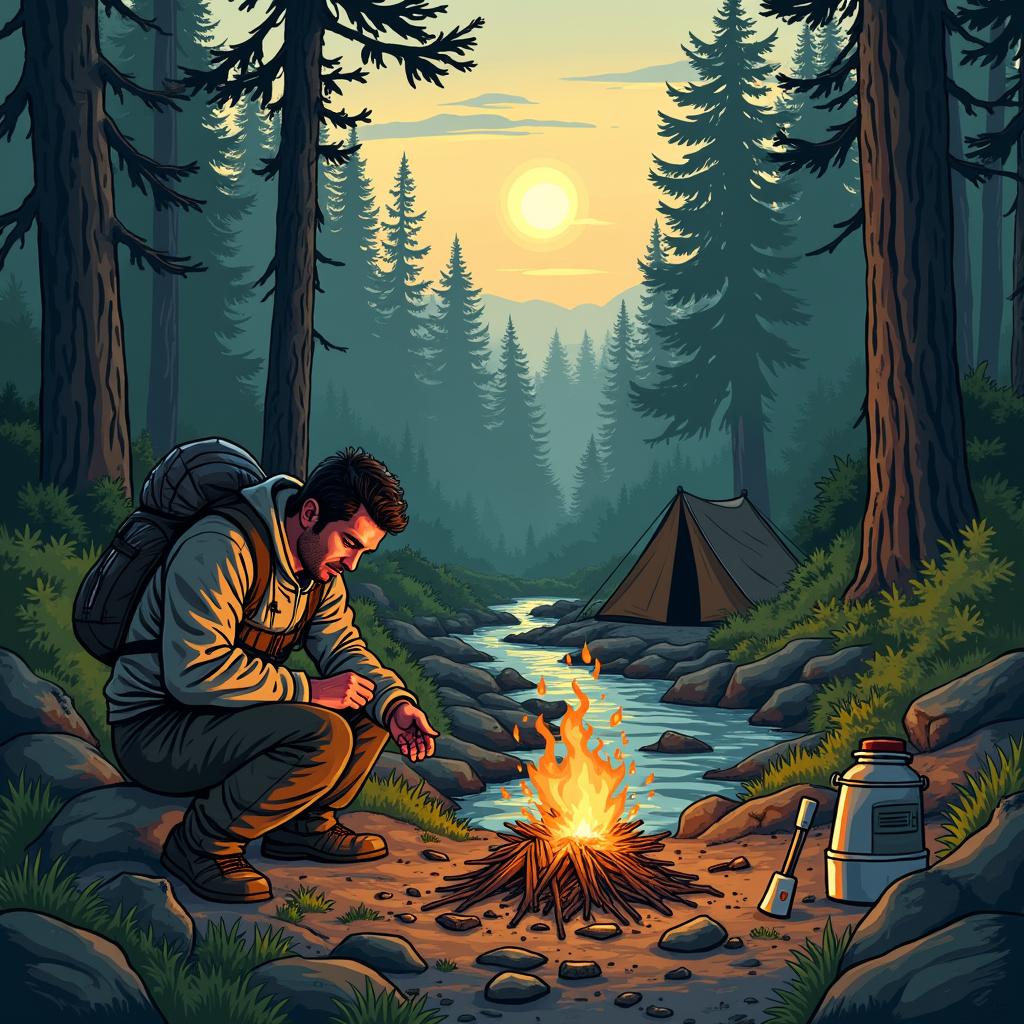
In a survival situation, it is important to be prepared to handle common injuries and illnesses that may occur. Knowing how to treat cuts, burns, sprains, and fevers can make all the difference in a time of need. From basic first aid techniques to improvising with natural remedies, being equipped with the knowledge and skills to care for yourself and others can greatly increase your chances of survival. Stay calm, stay informed, and be ready to act when faced with unexpected health challenges. How Do I Treat Common Injuries And Illnesses In A Survival Situation?
How do I treat common injuries and illnesses in a survival situation? If you find yourself in a remote area or facing a natural disaster, knowing how to handle basic medical needs can be crucial. In this guide, we will explore various injuries and illnesses you may encounter in a survival situation and how to treat them with limited resources. From cuts and bruises to insect bites and dehydration, we’ve got you covered.
Cuts and Scrapes
Dealing with cuts and scrapes is a common occurrence, especially in survival situations where you may be navigating through rough terrain or using tools.
In a survival situation, it’s essential to clean the wound thoroughly to prevent infection. If you have access to clean water, use it to rinse the wound and remove any dirt or debris. You can also use an alcohol swab or antiseptic wipe if available.
Treatment:
- Apply pressure to the wound to stop the bleeding.
- Use an adhesive bandage or gauze to cover the wound and keep it clean.
- Change the bandage regularly to prevent infection.
- If the wound shows signs of infection (redness, swelling, pus), seek medical attention if possible.
Remember, keeping wounds clean and covered is vital to preventing infection and promoting healing.
Broken Bones
Dealing with a broken bone in a survival situation can be challenging, especially without access to medical facilities or equipment.
If you suspect someone has a broken bone, it’s crucial to immobilize the injury to prevent further damage. You can use improvised splints made from sticks or other sturdy objects to stabilize the broken bone.
Treatment:
- Carefully place the splint along the injured limb, making sure to support the joint above and below the break.
- Secure the splint in place with bandages, cloth, or strips of fabric.
- Try to keep the injured limb elevated to reduce swelling and pain.
While it’s essential to stabilize the injury, seeking medical attention as soon as possible is critical for proper treatment of a broken bone.
Dehydration
Dehydration is a common issue in survival situations, especially if you are exposed to extreme heat or limited water sources.
When facing dehydration, it’s essential to prioritize finding clean water to rehydrate. If clean water is scarce, you can use various methods to purify water, such as boiling, filtering, or using purification tablets.
Treatment:
- Drink small amounts of water frequently to prevent overwhelming your system.
- Rest in a shaded area to avoid further dehydration.
- Avoid consuming caffeine or alcohol, as they can dehydrate the body further.
Staying hydrated is crucial for your overall health and well-being, so be sure to prioritize finding and consuming clean water in a survival situation.
Hypothermia
Hypothermia is a serious condition that can occur when your body loses heat faster than it can produce it, leading to a dangerously low body temperature.
If you or someone else is experiencing signs of hypothermia, such as shivering, confusion, or drowsiness, it’s crucial to address the issue immediately to prevent further complications.
Treatment:
- Remove wet clothing and replace it with dry, warm layers.
- Use blankets or other insulating materials to trap body heat.
- Consume warm beverages or food to help raise body temperature.
Preventing hypothermia in a survival situation involves staying dry, warm, and properly insulated from the elements.
Insect Bites and Stings
Insect bites and stings can be annoying at best and potentially dangerous at worst, especially if you are allergic to certain insects.
If you are bitten or stung by an insect in a survival situation, it’s essential to address the issue promptly to prevent swelling, pain, or infection.
Treatment:
- Wash the affected area with soap and water to remove any venom or irritants.
- Apply a cold compress or ice pack to reduce swelling and pain.
- Consider using over-the-counter antihistamines or anti-itch creams to alleviate symptoms.
While most insect bites and stings are minor, some can be severe or life-threatening, so be sure to monitor the affected area for any signs of an allergic reaction.
Burns
Burns can happen in a survival situation when handling open flames, cooking over a campfire, or coming into contact with hot surfaces.
Treating burns in a survival situation involves cooling the affected area, preventing infection, and promoting healing.
Treatment:
- Cool the burn with cool, running water for at least 10-15 minutes.
- Cover the burn loosely with a sterile bandage or clean cloth.
- Avoid breaking blisters or applying butter or oil to the burn.
Seek medical attention for severe burns, especially those that cover a large area of the body or result in significant pain or blistering.
Conclusion
In a survival situation, knowing how to treat common injuries and illnesses can make a significant difference in your overall well-being and ability to navigate challenging circumstances. By understanding how to address cuts and scrapes, broken bones, dehydration, hypothermia, insect bites and stings, and burns, you can better prepare yourself for unexpected challenges and emergencies.
Remember, staying calm, resourceful, and proactive in a survival situation can help you overcome obstacles and stay safe until help arrives. Be prepared, stay informed, and prioritize your health and safety above all else. With the right knowledge and skills, you can handle common injuries and illnesses in a survival situation with confidence and resilience.
